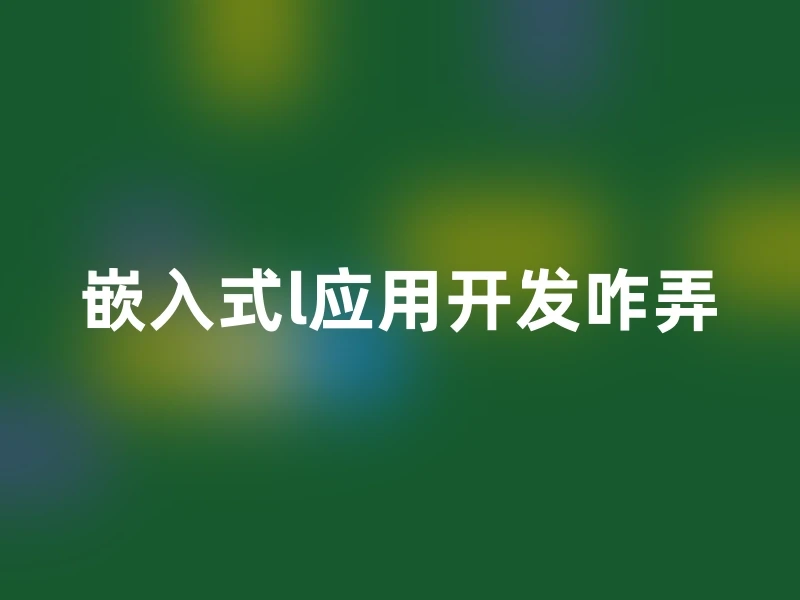Categorization:Product Information
Sensor and Detection Technology" is the frontier technology of modern science and technology, the foundation of manufacturing automation and informationization, the second special network and the future "ubiquitous network" information source of important supporting technology, is suitable for electromechanical, automation, aviation, navigation and aerospace and other professional basic courses. Sensor and detection technology involves a variety of physical quantities, chemical quantities, biological quantities, such as measurement, transformation and processing, is a very wide range of applications, industrial and agricultural production, national defense and other courses of great significance. The course involves physics, chemistry, test metrology, electronics, mechanics, communications, computers, automatic control, instrumentation and many other disciplines, its theory and practice are very strong. Learning this specialized basic course will play a very important role in students' future work, therefore, domestic and foreign colleges and universities attach great importance to the teaching of this course. "Sensors and detection technology" course in the content of the field of detection technology, including some of the basic concepts and measurement methods, error analysis and measurement data processing, the general characteristics of the sensor analysis, a variety of commonly used sensors (such as resistance, inductance, capacitance, piezoelectricity, magnetoelectricity, thermoelectricity, photoelectricity, etc.), the working principle, structure, nonlinear error compensation, the working principle, structure, and nonlinear error compensation, the use of sensors in the future. The course focuses on the accumulation of theoretical basic knowledge as well as the cultivation of practical engineering measurement and control technology and advanced scientific methods. Learning the course well is important for the students' graduation design, electronic design and data processing.
Sensor course design is an independent practice course offered by the measurement and control technology and instrumentation majors, and is also an elective course for electrical engineering and automation majors. This course takes the performance test and practical application design of various types of sensors as the clue to complete the basic, design and comprehensive experiments and design contents of magnetic sensors, temperature sensors, photoelectric sensors, strain sensors, inductive sensors, capacitive sensors, piezoelectric sensors, fiber optic sensors, temperature and humidity sensors, intelligent sensors, etc. Through the combination of in-class and extra-curricular, independent application of experimental projects and laboratory Through the combination of in-class and out-of-class, self-applied experimental projects and open projects, students can master the use of different kinds of sensors and design the basic skills, deepen the students' understanding of the theoretical knowledge of "sensor principle and detection technology", and lay a foundation for the development and design of instrumentation systems.

Title: 1, Design of strain load cell, 2, Design of inductive displacement, 3, Design of capacitive displacement, 4, Design of Hall displacement, 5, Design of eddy current displacement, 6, Design of piezoelectric acceleration, 7, Design of eddy current rotation speed, 8, Design of capacitive acceleration,.
Principle of operation, construction, materials, characterization, analysis, and conversion circuit analysis of major sensors~
Urgent Thank you~~~ Sensor course design is an independent practice course offered by the measurement and control technology and instrumentation majors, as well as electrical engineering and automation majors of the elective courses. This course takes the performance test and practical application design of various types of sensors as a clue to complete the basic, design and comprehensive experiments and design contents of magnetic sensors, temperature sensors, photoelectric sensors, strain sensors, inductive sensors, capacitive sensors, piezoelectric sensors, fiber optic sensors, temperature and humidity sensors, intelligent sensors, etc. Through a combination of intracurricular and extracurricular activities, independent application of experimental projects and labs, students can master the use and design of different types of sensors. Through the combination of in-class and out-of-class, self-applied experimental projects and open projects, students can master the use of different types of sensors and design the basic skills, deepen their understanding of the theoretical knowledge of "sensor principles and detection technology", and lay a foundation for the development and design of instrumentation systems.
Sensor and Detection Technology" is the frontier technology of modern science and technology, the foundation of manufacturing automation and informationization, the second special network and the future "ubiquitous network" information source of important supporting technology, is suitable for electromechanical, automation, aviation, navigation and aerospace and other professional basic courses. Sensor and detection technology involves a variety of physical quantities, chemical quantities, biological quantities, such as measurement, transformation and processing, is a very wide range of applications, industrial and agricultural production, national defense and other courses of great significance. The course involves physics, chemistry, test metrology, electronics, mechanics, communications, computers, automatic control, instrumentation and many other disciplines, its theory and practice are very strong. Learning this specialized basic course will play a very important role in students' future work, therefore, domestic and foreign colleges and universities attach great importance to the teaching of this course. "Sensors and detection technology" course in the content of the field of detection technology, including some of the basic concepts and measurement methods, error analysis and measurement data processing, the general characteristics of the sensor analysis, a variety of commonly used sensors (such as resistance, inductance, capacitance, piezoelectricity, magnetoelectricity, thermoelectricity, photoelectricity, etc.), the working principle, structure, nonlinear error compensation, the working principle, structure, and nonlinear error compensation, the use of sensors in the future. The course focuses on the accumulation of theoretical knowledge as well as the cultivation of practical engineering measurement and control technology and advanced scientific methods, and learning the course well is important for students' graduation design.